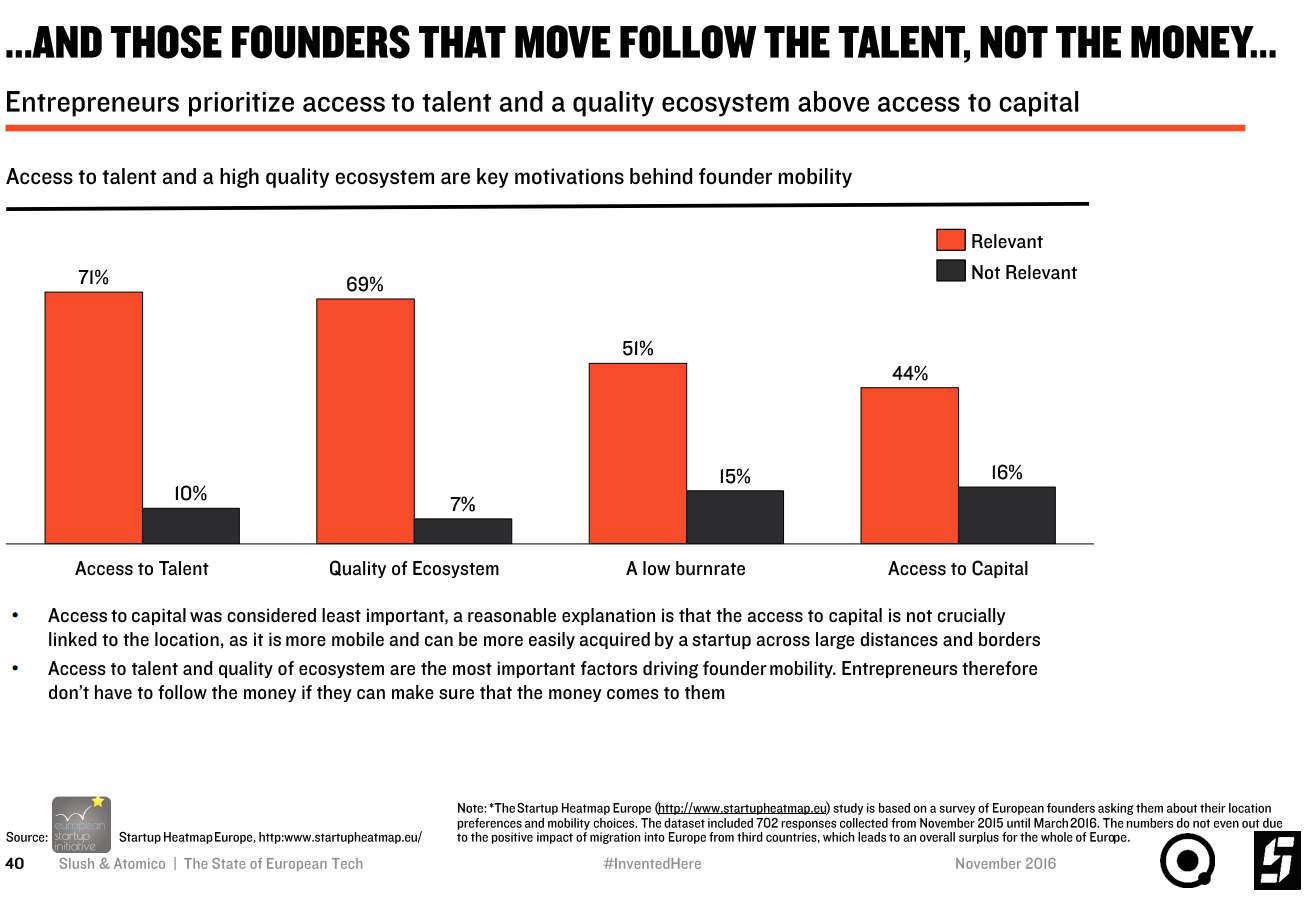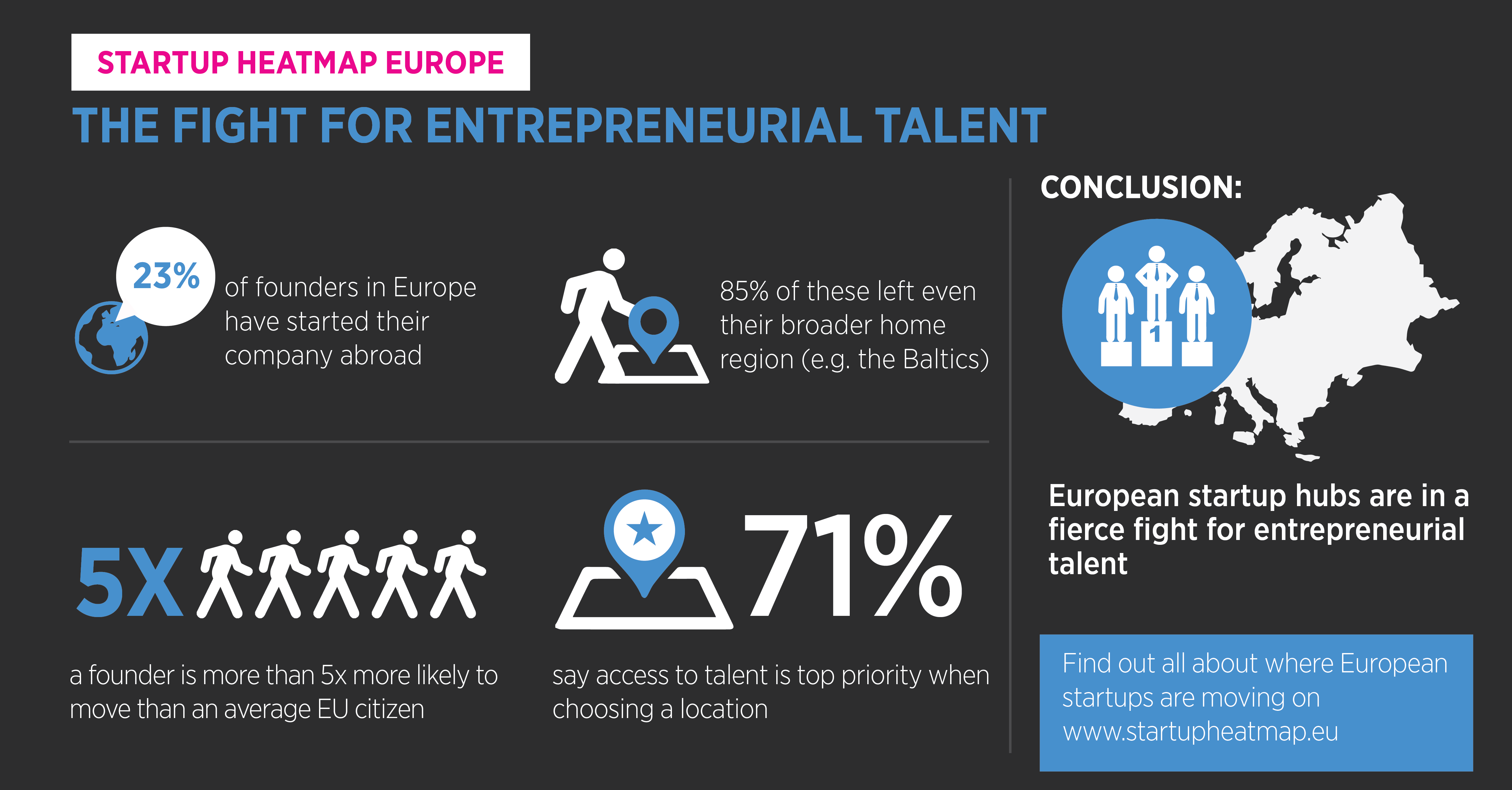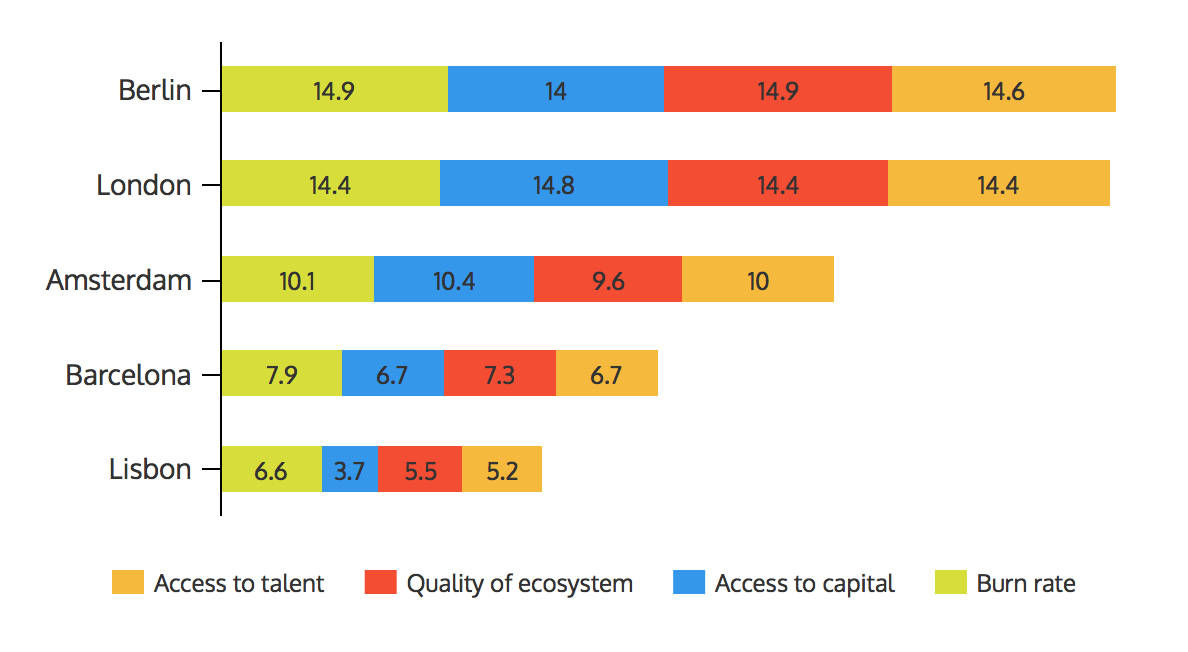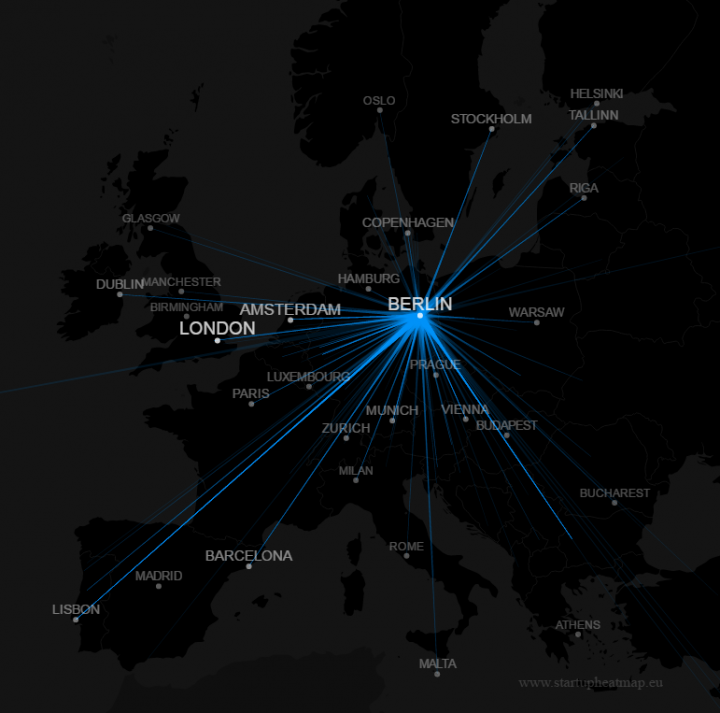There is a fierce tussle among startup hotspots to see who can attract the best entrepreneurial minds. Already, 1 in 5 European founders have started a company abroad. That is 5 times the likelihood of cross-country mobility of an average European citizen! Querying their motivations, Startup Heatmap Europe reveals that talent, more than capital, is the strongest driver of startup migration. In this Europe-wide survey, Berlin beats London and Amsterdam to second and third places respectively, to clinch the title of favourite startup hub. Interestingly, Munich is prominent on founders’ wish list, making Germany the most represented country in the ranking of the top 10 startup cities.
Talent: the most essential element
85% of founders who have established companies in EU countries outside their home states have moved far from their regions, for examples, from the Nordics to the Mediterranean or from the Baltics to Benelux. 71% of all founders rate “access to talent” as the most relevant factor for startup location. The quality of the startup ecosystem was also voted as a priority by founders, regardless of type of startup, as it gains 69% of votes. Monthly costs and ease of obtaining capital occupy the bottom rungs of the ladder as far as innovative business-owners are concerned. Clearly, entrepreneurs are on the move and their final destinations may be predicted by pinpointing their major preoccupation – talent.

Furthermore, one may assume that citizens of countries with low GDP per capita (with respect to the EU average) may be more inclined to place significantly more weight on access to capital when choosing their startup locations compared to their counterparts that hail from richer countries. Interestingly, we can ascertain that this was not the case. The importance of attracting top tech talent seems to unite founders across the continent.
Considering that this pattern remains the same for the 43% of startup owners in the survey who had moved cities within the same country, it is crystal clear that the competition is not for the highest sponsorships but for the best brains. Apparently, successful entrepreneurs can see beyond the political dressing and the PR, to the backbone of a potential startup city – talented, resourceful minds hungry to make their mark on the European tech canvas with the hope of transforming an innovative idea into the next global success. Perhaps, they are convinced of the essentiality of the right team to produce the best results. The onus then, is on community builders and policy makers to beef up local ecosystems and promote platforms aimed at increasing the technical skills of the workforce. Conceivably, the enriched talent pools will seduce founders and bring in the much-desired investments.

Champion amidst competition
Talent, in fact, and a highly functional ecosystem, have been the building blocks of Germany’s exponential rise in the European startup scene. Berlin, the capital city, has long been credited for its high standard of living, relatively low costs, co-working culture, youthful populace and international appeal. Success stories like Zalando and Delivery Hero, attest to the impact of its buzzing scene. In addition, the city yearly hosts high-profile tech gatherings like the IFA Consumer Electronics Show, Heureka Founders’ Conference and Tech Open Air (where the first Startup Heatmap report was launched) just to mention a few. In the same vein, the German megalopolis is strongly endorsed by entrepreneurs from all over the continent, chiefly from Western Europeans where over 60% of founders can imagine to startup there according to our study. Berlin’s popularity also spans to Benelux and the Baltics from where it gathers praise from more than half of founders that hail from these regions each. In fact, if they had the opportunity to start over again, 1 in 2 founders in our survey would choose Berlin! (Download the full report here).
Despite its fame, the competition is very much alive and kicking: London maintains its lead as the hub for capital-intensive startups; Amsterdam remains the place-to-be for founders from Benelux and Barcelona’s ecosystem has earned a good reputation among European techpreneurs. Lisbon, Portugal’s fast-growing metropolis and home to the Web Summit is not to be overlooked as it jumps 20 ranks up (with respect to startup media coverage) to take the 5th position on the list of most-desired startup places in Europe. It goes without question therefore, that the struggle is real and Berlin may not quickly be crowned the Eldorado of Startup Europe without a fight! However, with Brexit in motion, this may no longer be a distant possibility.
Furthermore, when matching kinds of startups and founders’ endorsements, Berlin maintains its reputation as ideal startup city for both high tech startups (hardware, IoT, VR, big data, fintech and biotech) and internet startups (e-commerce, mobile apps and SaaS solutions). Despite stiff rivalry from hotspots like Zurich, which rises +7 ranks in view of high tech founders and Prague (+3 ranks up for internet startups), Deutschland’s largest tech hub manages to retain its position as first choice in these sub-rankings. Founders’ unanimous belief that the city’s attractive ecosystem has capacity to cater for their startups regardless of sector, may indicate that the Berlin buzz has come to stay.
On the other hand, Munich is popular with high tech startups and rated favourably for access to capital. Hamburg climbs a decent +5 ranks with respect to the attention it gets on startup media and is flanked above and below by Paris and Warsaw respectively – an attestation to the competitiveness of the home country at European level (see founders’ rating of hotspot cities versus startup media rankings).

Leading post-Brexit EU tech
Already the battle for top-notch talent is on and Startup Germany is at the forefront. With a net startup migration inflow of +11% (as at 2016), Germany is proving to be an exciting option for new entrepreneurs. This is impressive considering the human capital flight phenomenon that Italy experiences: 29% net outflow of founders. Balderton Capital reports that the UK, France and Germany are already home to almost two-thirds of EU startup employees. In a post-Brexit world, despite the proven architecture of its hotspots, Germany will be in a tough race with strong challengers like France, another powerhouse for investments, the Netherlands, the country that has most benefitted from startup migration (+31% increase as at 2016) and the Nordics, a hot region for tech innovators.
Startup Europe is booming and the competition is fierce to attract the crème de la crème of startup enthusiasts. With each hotspot parading their merits, concentrated national and regional efforts are necessary to retain innovative businesses. If access to talent is the entrepreneur’s magnet, then German hubs are poised to keep pulling weight in the evolution of Startup Europe.
